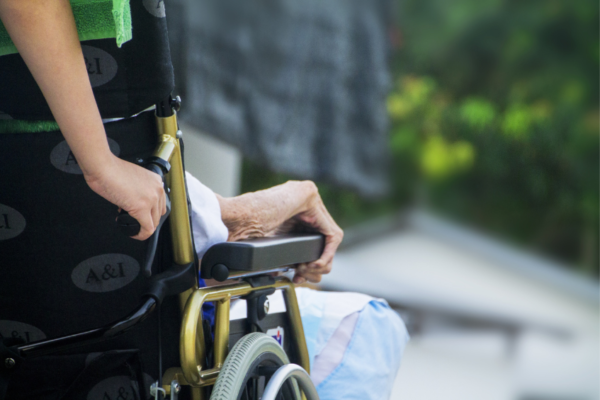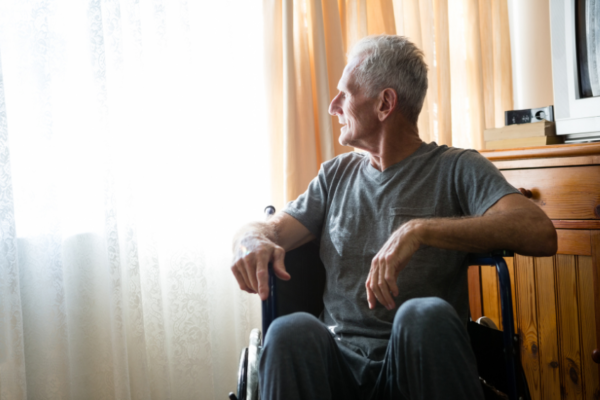Nursing home abuse and neglect is a sadly common problem. According to the CDC, hundreds of thousands of elderly people experience abuse and neglect every year—and these are only the reported cases. This issue is notoriously under-reported, so it’s likely that this number represents only a fraction of the whole.
Elder abuse and neglect can occur both at home and in residential care settings. If you have an elderly loved one you believe is being abused, an elder law attorney can help you extricate them from a dangerous situation.
We have helped many people protect their elder loved ones over the years. Here are answers to some of the more common questions we hear.
What Are the Signs of Elder Abuse and Neglect?
Elder abuse and neglect can take many forms. The general categories include:
Physical Abuse: Any use of force that leads to harm can be categorized as this. Some signs include:
- Sudden frequent falls or instances of “clumsiness”
- Bruises, sprains, dislocated joints, burns, or broken bones
- Signs that the person has self-treated an injury
- Unexplained hair or tooth loss
- Fear of a specific individual
- Frequent hospitalization for the same or similar injuries
- Unconvincing explanations about injuries from caretakers
- Visits to different emergency rooms to avoid detection
Sexual Abuse: Sexual abuse includes any unwanted sexual contact, and those with cognitive difficulties and memory issues are particularly vulnerable. Signs include:
- Pain or bleeding from the genitals or anus
- Bloody or stained underwear
- Bruising or injuries to the genitals or upper thighs
- Unexplained STDs
- Difficulty walking or sitting
- Pelvic injury
- Panic attacks, withdrawal, or suicidal thoughts
Emotional or Psychological Abuse: This can include threats and intimidation, insults, social isolation, bullying, and humiliation. Signs include:
- Signs of emotional disturbance, depression, or withdrawal
- Low self-esteem
- Isolation from friends and family
- Mood swings
Neglect and Abandonment: This occurs when a caregiver fails to provide for the elderly person’s basic needs, such as food and drink, adequate clothing and shelter, hygiene, medical care, and protection from dangerous situations. Signs include:
- A lack of proper hygiene
- Sudden weight loss and dehydration
- Confusion or fear
- Sudden decline in physical health; increased frailty
Financial Abuse: This occurs when a caretaker or family member takes advantage of the elderly person financially. Financial abuse can be insidious and is often perpetrated by someone the elderly person trusts.
The risk of this type of abuse is particularly high when the elderly person is suffering cognitive decline. Signs include:
- A pattern of items going missing
- Unexplained withdrawals or activity on the elderly person’s account
- Evidence of unpaid bills
- An individual showing inappropriate interest in the elderly person’s finances
- No documentation for certain financial transactions
- The elderly person does not understand their own financial circumstances

When is a Nursing Home Liable For Elder Abuse or Neglect?
Broadly speaking, the facility is responsible for the actions of its staff while on the job. In general, a facility may be held culpable for harm to a resident due to:
- Understaffing
- Hiring of unqualified staff
- Lack of staff training
- Medication errors
- Breach of regulations or statutory requirements
- Abusive or neglectful actions on the part of its employees
Nursing homes and other elder care facilities sometimes hire third-party contractors to handle various tasks, and these contractors may also be held liable for harm that comes to a resident.
What is the Statute of Limitations For Nursing Home Neglect?
In Georgia, the statute of limitations for nursing home neglect and abuse is two years from the time the abuse was discovered.
If you believe an elderly loved one may be in an abusive or neglectful situation, it is important to secure legal help as soon as possible.
What is a Nursing Home’s Liability if a Patient Falls at the Facility?
Slip-and-fall events in nursing homes and eldercare facilities are distressingly common. Part of that comes from the fact that elderly patients are more prone to falling than the general population, and more likely to be seriously injured if they fall.
Families generally expect that a quality nursing home will be aware of their population’s susceptibility to falls, and will take all possible measures to protect them from falling.
But not all falls are preventable, and the facility is not always liable if a fall occurs.
When an elderly resident is injured in a fall, the facility may or may not be held liable—depending on a variety of factors. Some situations where a facility may be held legally responsible for a resident’s fall include:
- The facility did not develop an appropriate care plan based on the resident’s needs, or reassess the care plan periodically.
- The facility developed a care plan but did not follow it when providing healthcare to the resident.
- The staff did not use best practices when doing things such as transferring the patient from the bed to a wheelchair, and this led to the injury.
- The facility hired underqualified staff or did not provide adequate training, which led to the fall and injury.
- The facility was understaffed, and that led to the resident’s fall and injury.
- The facility did not install appropriate mobility assistance features, such as handrails, night lights, or ramps.
- There were environmental hazards on the premises—such as wet floors, improper lighting, damaged flooring, and so on—and this led to the resident’s injury.

What is a Nursing Home Abuse Case Value?
The case value is the estimated amount of compensation that the plaintiff could receive if they win their case.
Usually, a lawyer may provide an initial estimate of a case value to inform the person bringing the suit and help them decide whether the pursuit of the case is worth it. This figure can also give the plaintiff an idea of how much to ask for in a settlement.
Generally speaking, there are three factors that determine how much a nursing home injury case is worth. These include:
Economic Damages: The financial loss experienced by the victim—such as medical bills or money stolen or embezzled.
Non-Economic Damages: Compensation for the pain and suffering caused by the neglect or abuse.
Punitive Damages: Compensation over and above economic and non-economic damages. It’s an amount generally designed to serve as a punishment to the defendant for harming the victim and to discourage such behavior in others.
It’s impossible to estimate how much you might receive in compensation for a nursing home injury suit without consulting an attorney. However, here are some facts and figures about the finances involved in nursing home neglect and injury cases.
- The largest jury-awarded compensation in a nursing home abuse case was $1.1 billion for the death of a 69-year-old nursing home resident in Florida.
- Approximately 95% of nursing home abuse cases are settled out of court, which usually results in lower amounts of compensation than a trial verdict.
- Nursing home abuse cases with the highest case value tend to involve the wrongful death of a resident.
- Depending on the report, the average case value for nursing home injuries ranges from approximately $406,000 to $750,000.
- Slip-and-fall incidents are among the most common accidents patients suffer in nursing homes.
How to Win Your Nursing Home Injury Case
If you believe an elderly loved one is being abused or neglected in a nursing home or residential care facility, don’t wait to consult a knowledgeable attorney.
We have helped many people protect their elderly family members and help them get out of abusive and neglectful situations. We can help you and your loved one as well.
Call us at (404) 647-0722 or send us an email to schedule your free, confidential consultation today.

